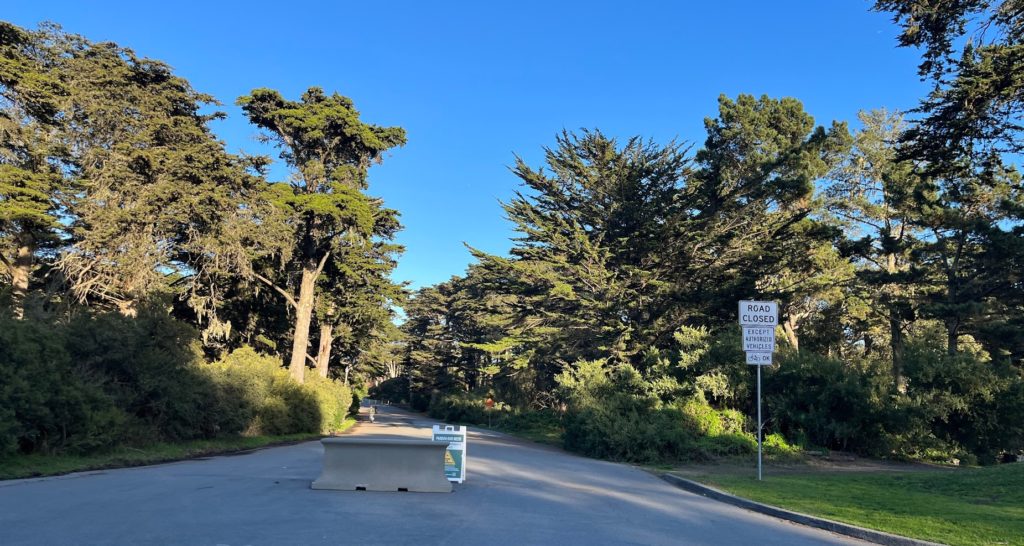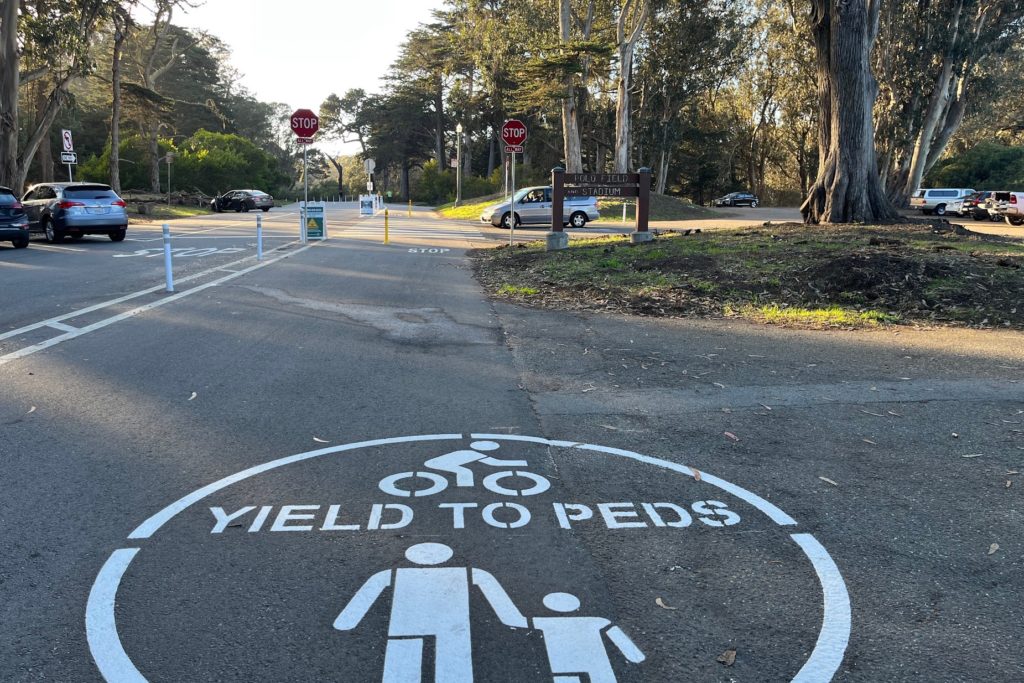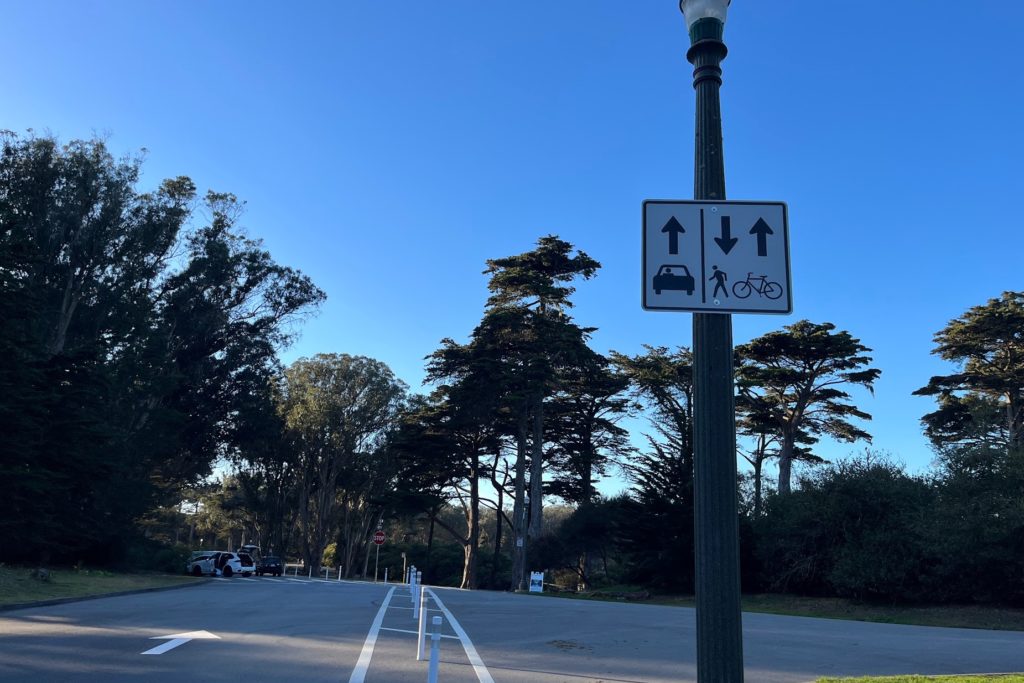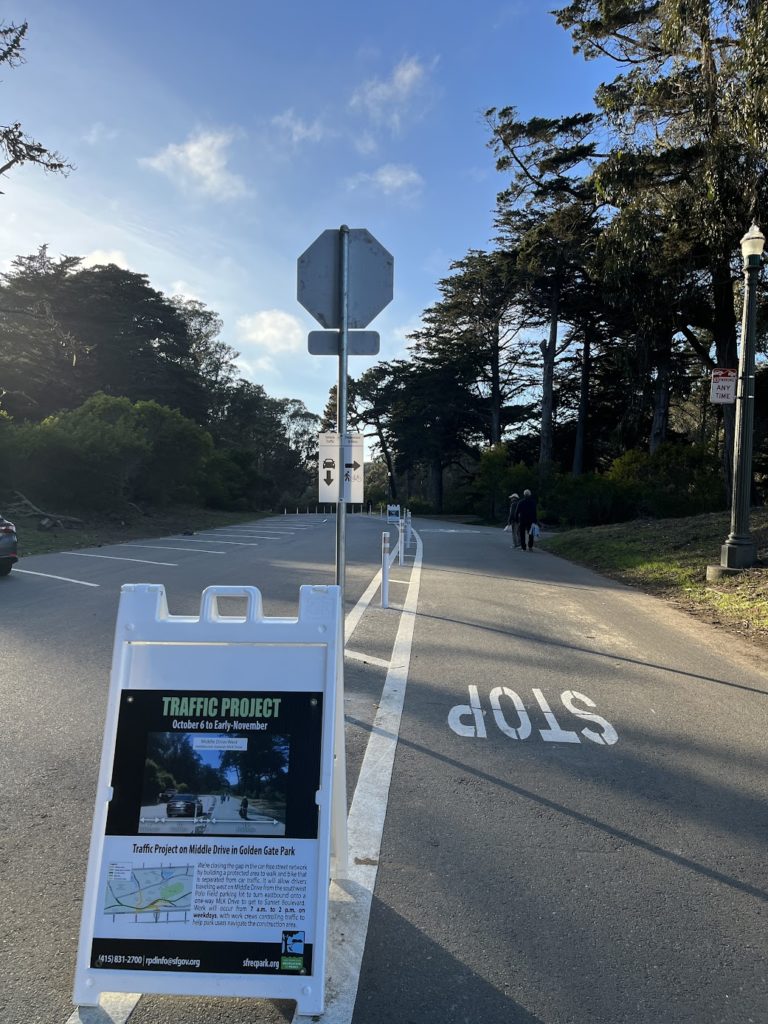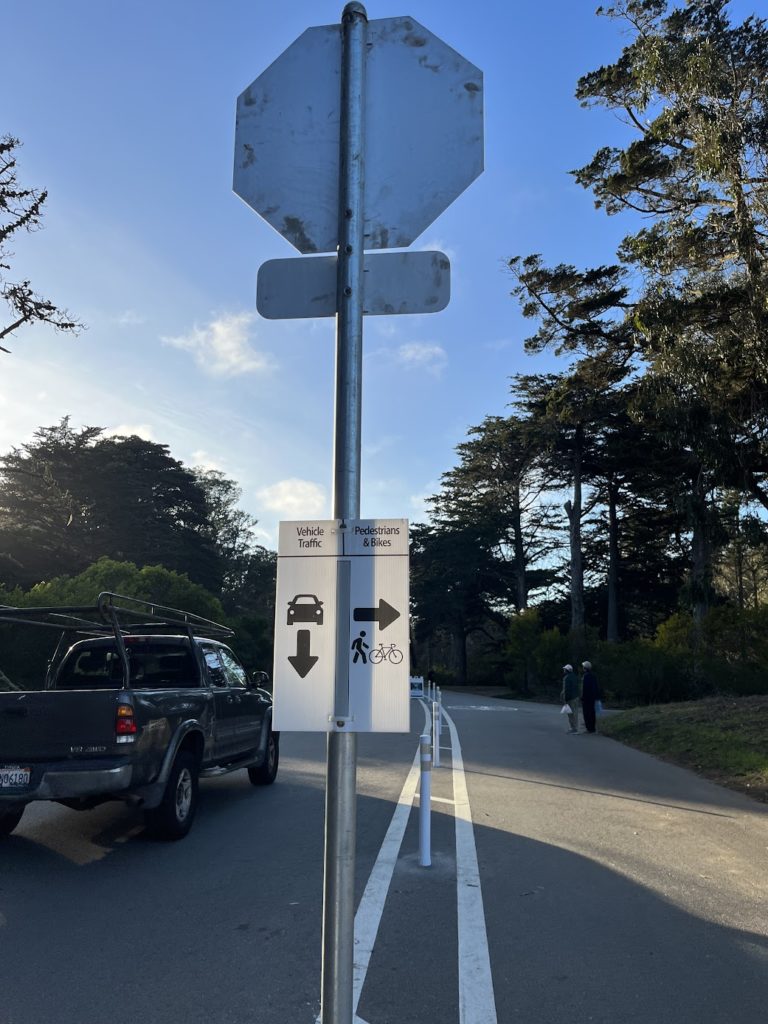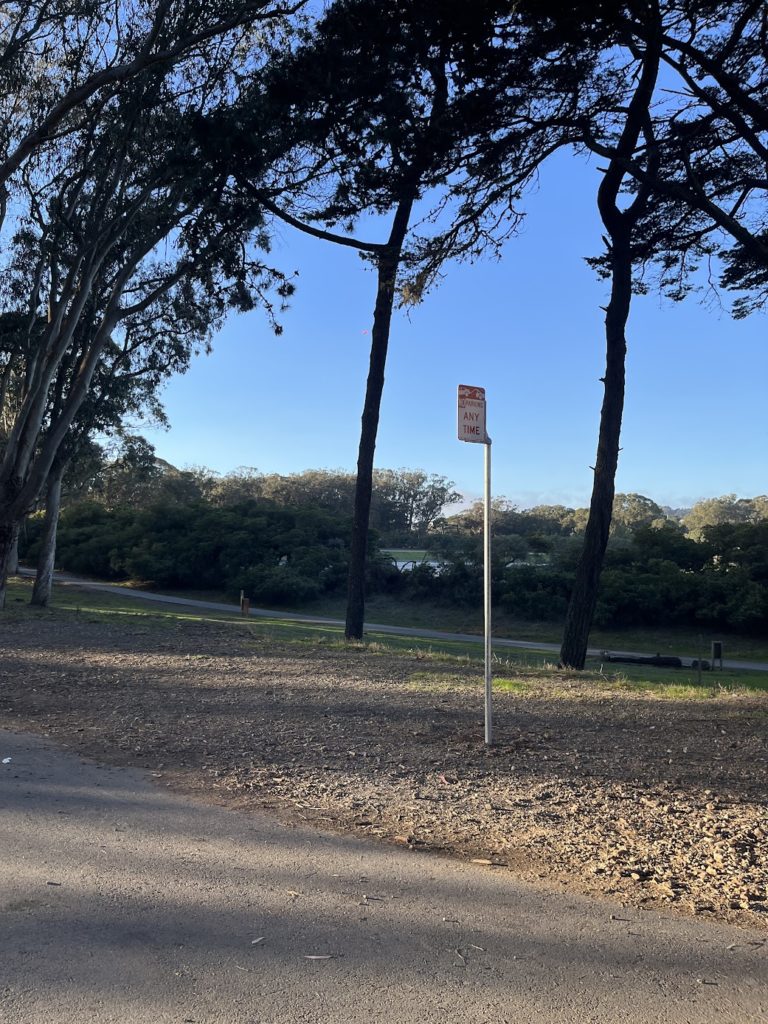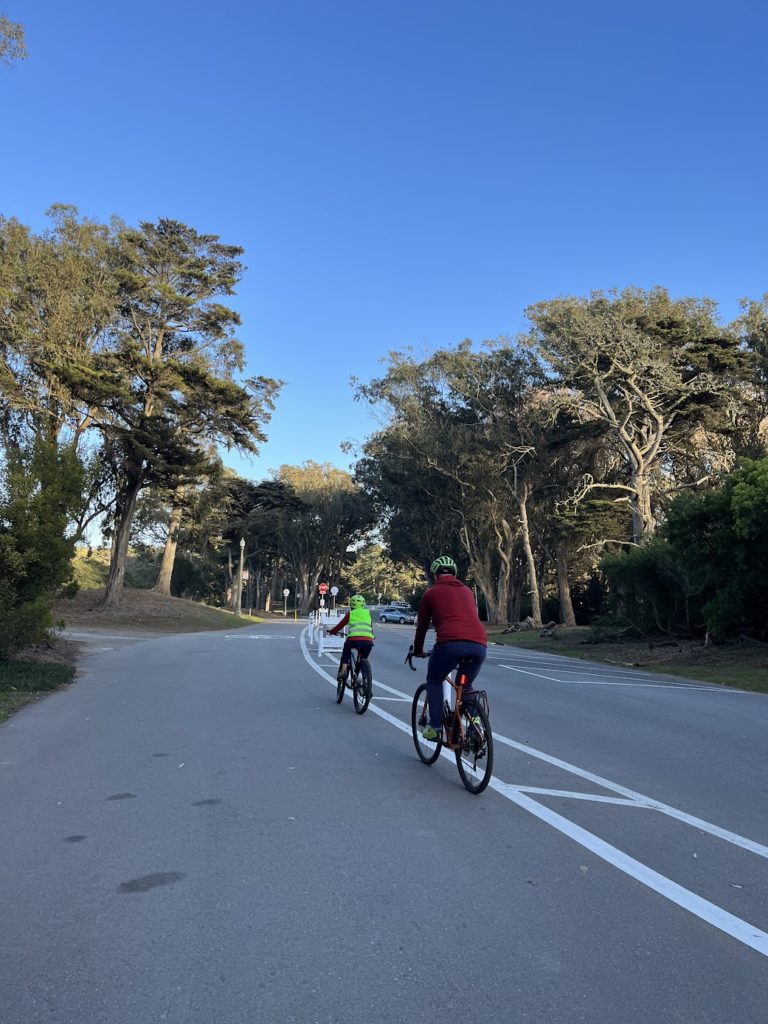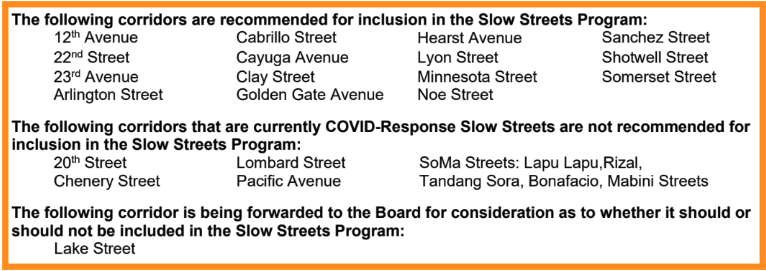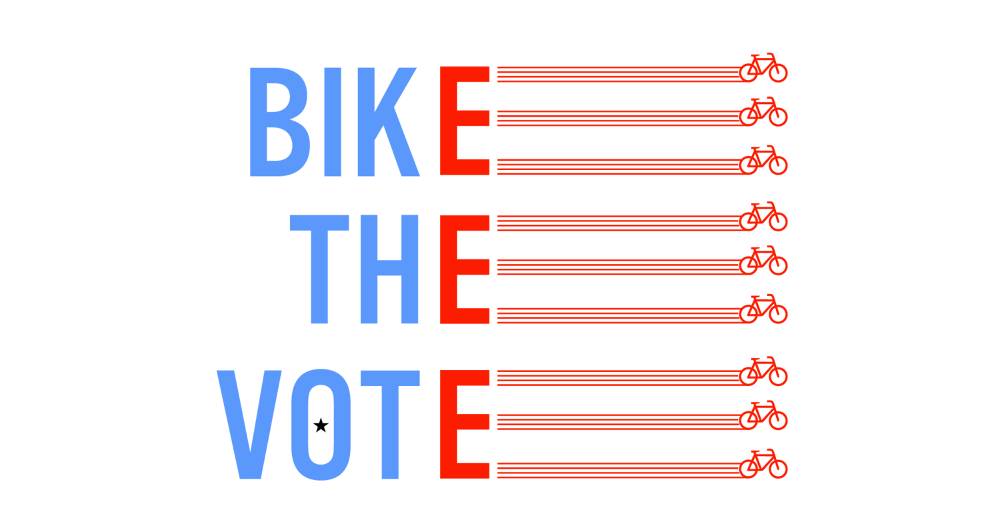The San Francisco Bicycle Coalition is transforming our streets and neighborhoods into safe, just, and livable places by promoting the bicycle for everyday transportation. We’re seeking a passionate, highly motivated Member Engagement Manager with a commitment to transportation justice to lead our membership program.
The Member Engagement Manager will oversee all aspects of the SF Bicycle Coalition’s robust membership program and lead our work toward membership growth and engagement, and making our membership accessible to more people. The Member Engagement Manager will advance our community-building and list-growth strategy to the large and growing number of people biking. They will oversee the member experience, including member events, communications, benefits, and affinity groups. In recognition of the crucial role that members play in shaping and reflecting the culture of the organization, the Member Engagement Manager will take a leadership role in the positive development of organizational culture, including working to ensure that our membership serves more people in San Francisco and actively embraces our community agreements. Working within the Membership department and closely with the Development Director, but also across teams with the Advocacy, Program, Marketing Communications, and Operations teams, the Member Engagement Manager will represent our members’ interests and demonstrate a command of issues, campaigns, and experiences relevant to a broad cross-section of our membership.
Commitment to Equity and Justice
The San Francisco Bicycle Coalition is an equal opportunity employer and acknowledges the historic harm biking culture and unequal access to transportation have inflicted upon underserved communities — including people of color, people with disabilities, people from working-class backgrounds, women, and people with LGBTQ+ identities. We believe that these communities must be centered as leaders in the work we do; therefore, we strongly encourage applications from people with these identities.
Specific duties and responsibilities include, but are not limited to:
- Manage, support, and grow the Membership team, including but not limited to full-time Volunteer and Membership Coordinator and intern support.
- Develop and execute membership strategy, which includes creating annual plans and budget goals focused on growth of membership base.
- Create and execute a robust calendar of community-focused events to foster membership engagement and growth.
- Develop goals and strategies to achieve membership acquisition and renewal targets for major events.
- Work with Development Director to steward higher-income members to renew at higher rates, become monthly givers, and/or become major donors through thoughtful, targeted relationship-building and direct asks.
- Work with organizational leadership to make progress toward our goal of building an organization that better serves all of San Francisco, with particular emphasis on representing low-income and historically marginalized people who bike.
- Design, administer, and analyze tools, such as the biennial member survey, to evaluate opinion trends among members; present results and use findings to guide membership priorities.
- Plan and support Program and Advocacy staff in conducting streetside and event outreach activities, achieving specific goals related to list-building and member acquisition.
- Oversee Monthly Giving program, including setting goals and strategies to grow the program while supervising monthly giver accounts.
- Work with the Operations team to innovate member engagement and retention strategies, and improve the member experience.
- Innovate and oversee all other miscellaneous outreach initiatives, including bike shop outreach, aligning with strategic goals and objectives for membership growth and advocacy campaigns, delegating responsibility for execution as needed.
- Work with the Board of Directors’ Membership and Fundraising Committee to grow and engage membership.
Strong candidates will possess the following key qualifications:
We recognize that this position encompasses a number of different responsibility areas. We are committed to train and support our staff to strengthen their abilities in each area and we encourage applications from people who may not have all of the qualifications listed below.
- A deep commitment to the San Francisco Bicycle Coalition’s mission;
- Previous management and leadership experience, including five years of progressively increasing responsibility;
- Interest in and passion for transportation equity, justice, and antiracism;
- Excellent communication and interpersonal skills;
- Experience with Salesforce or other CRM;
- Event-planning experience;
- Budgeting and forecasting experience;
- Successful design and execution of multi-channel campaigns using direct marketing, digital engagement, online solicitations, and related marketing vehicles;
- Exceptional writing skills for a diversity of media and audiences;
- Successful project planning and strategy implementation;
- Strong organizational, multi-tasking, and time-management skills;
- Volunteer experience and/or community involvement; and
- Fluency in languages other than English, specifically Spanish, Cantonese, or Tagalog.
Reports to: Director of Development
Direct Reports: Volunteer and Membership Coordinator
Salary and Benefits: The annual salary for this exempt position is between $70,000 and $80,000, depending upon depth of experience. Full-time benefits include excellent medical, vision, and dental insurance with no employee contribution, as well as 10 days paid sick leave, 12 paid holidays and 3 weeks PTO (starting) annually, every other Friday off, 401k plan with match, commuter benefits, and flexible work arrangement policies.
Hours: Full-time. Flexibility to work nights and weekends; this position may require approximately three to seven nights per month and one to three weekend days monthly.
About the San Francisco Bicycle Coalition
The San Francisco Bicycle Coalition works to transform San Francisco’s streets and neighborhoods into safe, just, and livable places by promoting the bicycle for everyday transportation. Our work is guided by our core values of Transportation Justice, Sustainability, People Power, and Joy. The organization’s culture reflects its grassroots origins and professional advocacy in equal measures. Our active membership represents San Franciscans of all ages and backgrounds from all neighborhoods who are working towards safe, sustainable, and more affordable ways to move around our city. The SF Bicycle Coalition is the largest city-based bicycle advocacy group in the nation and one of the largest member-driven groups in San Francisco.
To apply, please submit a resume and a PDF with your answers to the below three questions. Please make your answers roughly one paragraph each:
- What makes you excited to work at the San Francisco Bicycle Coalition?
- How would you go about leveraging a range of small, medium, and large-scale events to both cultivate community and grow our membership?
- Identify one SF Bicycle Coalition program that you think has high potential for increasing membership acquisition and retention. How would you create plans and collaborate with staff to leverage that potential?

